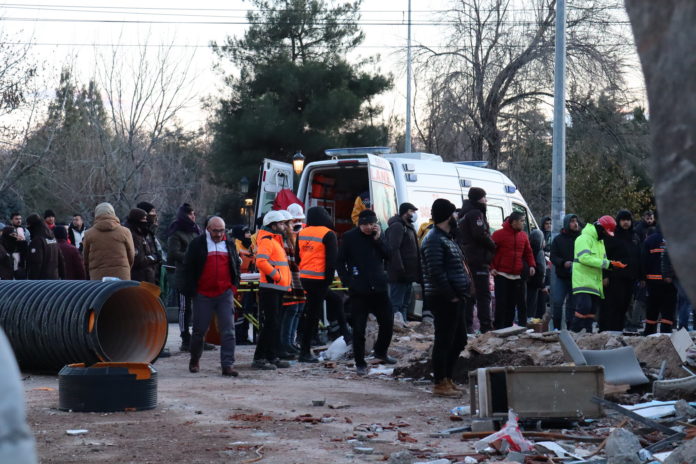
Mohammad Bakhash was in the hospital recovering from heart surgery when he found out about a pair of earthquakes that shook much of southeastern Turkey and western Syria, leaving more than 39,000 people dead.
Bakhash is a Syrian refugee and administrator of a Facebook group called “Syrian Association in Fredericton.” He said there was an overall feeling of shock when news of the disaster hit home.
“We were worried about our loved ones, especially in the first few hours when we didn’t hear from anyone,” he said.
Bakhash came to Canada as a refugee in 2016 due to the political unrest and violence in Syria, but he has family and friends in northern Syria and southern Turkey who have been affected by the earthquakes.
“I have a friend who lives in northern Syria and an old neighbour who lived in South Turkey. He passed away with his entire family,” he said.
“This is the last thing that anyone wants to experience.”
Bakhask said humanitarian aid in Syria is limited, so his association began to receive many messages from other Syrians in Canada, urging him to support the people affected by the earthquake.
“Natural disasters do not distinguish between people; they do not recognize borders. But people do,” he said.
Bakhask said the association was unsure of how to help, which is why he got together with New Brunswick’s Ukrainian community to ask for advice.
He felt inspired to learn from their experience after local Ukrainians supported their peers following Russia’s invasion of Ukraine.
Aslihan Erol, a fourth-year Turkish student at St. Thomas University, was laying in bed when she heard the news about the earthquakes. She wasn’t concerned at first, as earthquakes are common in her home country.
It wasn’t until she talked to more people about the news that she found out the disaster’s real consequences.
“I wish I was there because I could help so much more,“ said Erol.
While her immediate family is not in danger, Erol said some of her mother’s extended family lives in the affected area. She added that many students in Turkey returned home at the time of the earthquakes, as they were on winter break.
“I had a lot of friends who lost their classmates,” she said.
Erol urges Canadians to help disaster recovery efforts by donating money and sharing news about what is happening in her home country and Syria.
The International Federation of the Red Cross and Red Crescent (IFRC) launched two emergency appeals, supporting both countries with $200 million Swiss francs, equivalent to $289.638 million Canadian dollars.
Marie Claudet, IFRC’s senior communications officer, said the federation is working around the clock to provide first aid and relief items to the area, noting that the overall situation is “very desperate.”
“The loss of life is truly devastating,” she said.
Claudet said on top of the usual challenges they face in disaster response, volunteers now have to deal with below-freezing temperatures, which slows the response effort.
Citing a lack of electricity and crumbling infrastructure, she said it’s a “perfect storm of humanitarian needs.”
“What we really want to see is long-term support because the impacts of this disaster are going to be felt for years to come,” said Claudet.
With files from Aaron Sousa.
